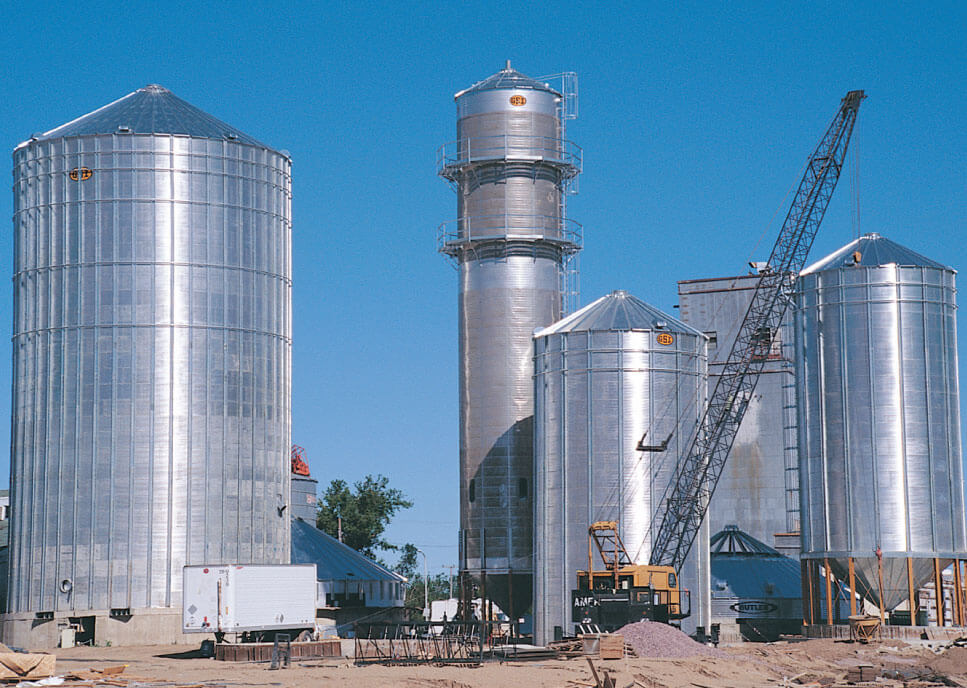
God calls the rich person in Jesus’ parable a fool. Strong, insulting language. To be foolish is the opposite of wise, a treasured virtue in Israel’s scriptures. King Solomon embodies the virtue and bounty of wisdom; he builds the kingdom of Israel to its height among nations yet recognizes that wisdom, which God alone can give, is what sustains his rule. Wisdom begins with knowing God is God.
Jesus’ parable tells us the rich person’s decision to build bigger barns to store an abundant harvest is foolish in God’s eyes. The parable doesn’t say what other people of the time thought, but we can imagine. Perhaps some saw in the new barns and granaries a person whom God singled out and blessed with abundance. Perhaps others saw a person they hoped to become — a landowner who never had to worry about food again. Perhaps they saw success.
All of us see new homes and buildings around us. What do we see? Someone willing to take on more debt than I am? Someone with a gift for success that I don’t know how to achieve? Someone who values appearances more than I care about? Someone who has worked hard and deserves a little luxury?
- How do you feel about signs of success you see about you?
From God’s point of view a surplus harvest is not to provide one person secure access to food, drink, and merriment in lean years. It is for everyone’s benefit in the present. The rich person in the parable plans no parties for friends, no feast for villagers, only self-indulgence. He has “blessings in reserve” with no plan to invest or lend his wealth. The gospel story makes a commonplace point: The rich man can’t take it with him when he dies.
The gospel regards using wealth in one’s own self-interest as foolish. In this perspective the gospel seems profoundly unAmerican. The French commentator on 18th-century American life, Alexis deTocqueville, praises America for its experiment in self-interest, the freedom of the yeoman farmer to reap the benefit of his own labor rather than receive little more than the means to survive by working on the inherited estates of the nobility. As I have unearthed my family history, I find ancestors on every side came to America and to Minnesota and Iowa to own their own land, make a living, and marry the girl or boy on the next farm.
Gaudium et Spes, the Constitution on the Church in the Modern World, is the Church’s most authoritative, inclusive source of Catholic social teaching, approved by council and pope together at the Second Vatican Council. The most forward-looking of the Council documents, it passed on the last day of the Council, 2309 voted yes to 75 no.
In the Church in the Modern World the bishops describe the distance between rich and poor. “In no other age has humankind enjoyed such an abundance of wealth, resources, and economic wellbeing; and yet a huge proportion of the people of the world is plagued by hunger and extreme need while countless numbers are totally illiterate. At no time have human beings had such a keen sense of freedom, only to be faced by new forms of slavery in living and thinking” (#4). For Pope Francis the common good summons us to solidarity and a preferential option for the poorest of our brothers and sisters (Laudato Si’ #157).
- How does Catholic social teaching help you apply the gospel message to our world?
- If our lives don’t consist in amassing possessions, what is most valuable?
In his gospel Luke urges us to see ourselves within a web of social relations, to stand in solidarity with those in need rather than alone like the rich fool. Like God, wise believers hear the cry of the poor and do their parts to empower those left behind or left out to participate in our common economic life. “To desire the common good and strive towards it is a requirement of justice and charity,” writes Pope Benedict XVI in his encyclical, Caritas in Veritate. “The more we strive to secure a common good corresponding to the real needs of our neighbours, the more effectively we love them” (7).
For Luke wealth is not a sign of favor but of danger. It is not good or bad in itself but faces the person with a choice to do good or evil. For Luke, God clearly holds the ultimate power to redistribute the wealth of people who will not share. This is the fate of the rich fool who must leave his full barns behind and face God with whom he has stored up no treasure.
- What wealth do you share with ease? What do you tend to protect?
- When and how has your giving connected you with others?
